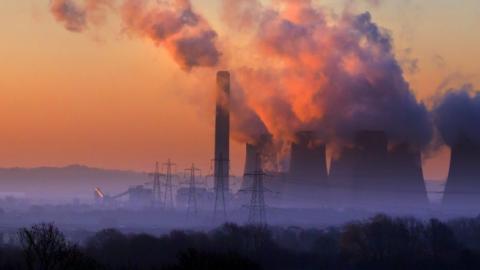The ice is finally melting. Not the Arctic ice, although that might be melting too. I mean the frozen position critics of the global warming hysterics have been taking. They disagree with Obama’s contention that the science of climate change is settled, and prefer reading actual temperatures recorded on thermometers to print-outs of assumption-ridden models. I am no fan of complex models, having watched the best and brightest model builders mis-measure risk before the recent financial upheaval, and more recently noticed that they failed to come close to predicting the 60% fall in oil prices. Against the certitude of those who believe the globe is warming and that human activity is the cause, we should set Bjorn Lomborg’s observation that temperatures in the past 15 years have risen 0.09 degrees Fahrenheit, 90% less than an average of all models predicted. So the planet might not be warming. And yet, and yet . . . I might be wrong, suggesting a bit of prudential action that is anyhow indicated by requirements other than a desire to keep cool.
The important point is that it is a long leap from climate-change skepticism -- I won’t use the inapt and offensive phrase “denial” -- to opposition to putting a price on, taxing if you prefer, carbon emissions. As we approach possible changes in our arcane tax structure, ask the wrong question, and you get a useless answer. For makers of fiscal policy, the wrong question is, “Is the planet warming?” The right question: “In formulating future tax policy, does it matter whether the earth is warming?” The answer is “no”. At least not when we are working to reform a sub-optimal tax structure.
Cold, hot or just right, we should be aiming for a tax structure that
* puts a greater burden on consumption than on work and risk-taking, thereby stimulating economic growth;
* reduces the burden of taxation on lower-income and middle-income tax payers by generating revenues that can reduce regressive payroll taxes without adding to our deficit or raising gasoline prices more than perhaps 18 cents per gallon, a figure well within the range of past fluctuations;
* makes it possible to dial back some of the subsidies and what have come to be called “loopholes” built into the current structure by leveling the playing field on which renewables and conservation compete with fossil fuels, making continued subsidies both uneconomic and unfair; and
* enables us to reduce the burden of regulation, especially on the energy sector, by internalizing externalities, making consumers of fossil fuels bear the full costs of their consumption, and allowing tax-inclusive prices to guide consumers’ decisions rather than tax-eating regulators.
That would seem to be a program with which politicians of all stripes, and ideologues of all sorts can agree. If you think the globe is warming, continue to think it, and focus on the fact that a carbon tax will have all of the benefits listed above, plus cutting carbon emissions; if you think it isn’t, retain your skepticism, and focus on the fact that these fiscal-policy advantages can be achieved by taxing, pricing if you prefer, carbon emissions, using free choices of consumers and producers to generate revenue to replace less efficient sources. Price carbon to save the planet if that pleases you; price carbon to permit growth-enhancing reforms to our tax code if that pleases you; price carbon both to save the planet and to reform the tax structure, if that is your pleasure. But price it.
Perhaps a realization of the tax-reform potential of a revenue-neutral carbon tax accounts for the melting of the ice in which conservative opponents to such a tax have so long been entombed. Now it is the turn of liberals to sign on in the interests of increasing the take-home pay of lower-paid workers, and having revenues available to ease the burdens on those families that have been the collateral damage of globalization.


















